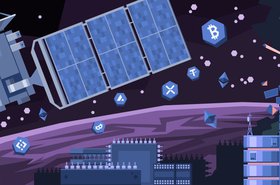Artificial intelligence is something that, as an industry, both intrigues and scares us. The former it should, the latter, it shouldn’t.
There is misguided anxiety that AI is here to replace humanity, but that could not be further from the case. AI or more specifically ‘programmed intelligence’ is here to supplement and elevate.
In the latest episode, we talked with Wes Swenson, CEO of Novva Data Centers about the Spot dogs the company purchased from Boston Dynamics, and has implemented in their facilities.
“We purchased a couple of Spot Boston Dynamics dogs and worked with a local university, called Brigham Young University, with their engineering department as a project to help us program these Spot dogs to operate within our data center autonomously. It’s a pretty new approach.
“I had seen reviews of these dogs a couple of years ago and felt that these would actually be a really good fit within a data center.”
As evidenced by Novva’s experience, the dogs have indeed been an asset to their facilities, taking over the aspects of the job that perhaps people don’t want to do as much.
“AI is a complement to the human element. There is drudgery in some of the routine things that our personnel do, but our value as a data center is in the build, the UPS, the maintenance, and then the monitoring.
“On the monitoring side, if we've done our job, a lot of it can be automated and should be automated, to where the systems basically self-heal. We have built enough monitoring algorithms to adjust for equipment that's failing, that's in distress, or that we need to do maintenance on.
“One of the things that the robot can do for us is sense hot and cold spots within the data center. As we collect that data, we can do statistical process control, and zero in on where the anomaly is how to address it. That's not something that's easily done with just the human element.”
However, despite the intelligence of this technology, it has not rendered humanity redundant.
“The robots are monitored and controlled from a central command because we have to watch the robots for anomalies: they may not be operating correctly or efficiently. For now, we can’t say that there's not some human element, but it can be at some point in the future.”
“The robots also offer us new technologies for payload-carrying. Eventually, we could see the robots carrying servers out to the data center.
“Boston Dynamics has another robot called Atlas, which is an upright robot. We could see the use of that, in the future, actually carrying very heavy servers and switching equipment out to the data center and loading it into cabinets, or taking payloads from the warehouse. It also offers us new windows into exterior security and monitoring, where the robots can go out in inclement weather and open doors for each other. Those types of things are not so far away.”
If we learned one thing from this week's Zero Downtime episode, it was the importance of learning how to work alongside other forms of intelligence, for the benefit of human employees.
Listen to the full episode for the entire mind-blowing conversation

